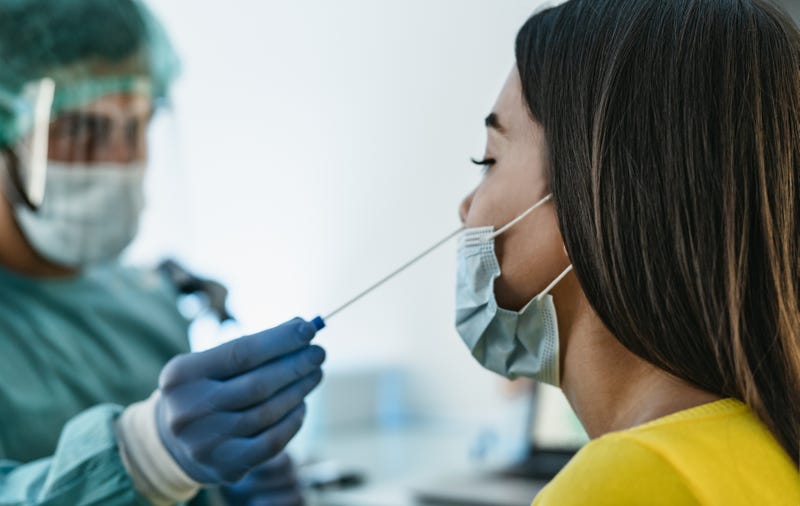
SAN FRANCISCO (KCBS RADIO) – With COVID-19 cases again on the rise, it seems as if everyone is getting sick.
For more, stream KCBS Radio now.
Even those who've already been infected with the virus before, no one is immune from reinfection.
"Reinfections are actually occurring at a fairly high rate," said Dr. Juliet Pulliam, Director of the Center of Excellence in Epidemiological Modelling and Analysis at Stellenbosch University in South Africa on KCBS Radio's "Ask an Expert" on Thursday with Melissa Culross and Jason Brooks.
According to the research being done at Pulliam's center, as of mid-March, there was a prevalence of about 98%, she said.
There has since been a major resurgence in the number of cases.
"Most of the people who were getting infected in our resurgents were actually people who had either natural immunity or had been vaccinated," said Pulliam.
It's unclear just how long it might take for a person to become eligible again for reinfection, she said, as the research the center does has a cut-off after about 90 days when looking at reinfection.
Some other data coming out of Denmark suggests that the possibility of reinfection may even occur sooner than those 90 days.
The subsequent infections are likely to be less severe than the first initial case, she said.
Other variants, like beta and delta from earlier in the pandemic, appeared to have the same reinfection rate as the original strain of the virus.
But omicron changed the game when it arrived on the scene, said Pulliam. "The infection rate went up dramatically."
And, it is possible to get reinfected more than twice, according to the data coming out of Pulliam's center. "It looks like people are getting reinfected multiple times," she said. "Potentially three or four infections."
While it is still early to tell, it's likely based on what has been learned so far that people could get infected multiple times with COVID-19 over the course of their lives, and it’s unclear how that will affect long COVID-19.
"Almost everyone will get infected at some point," she said.
But people shouldn't get too fatalistic about the virus, people should still be doing what they can to protect themselves during surges.
Vaccination is still the best protection against the virus, she said.
DOWNLOAD the Audacy App
SIGN UP and follow KCBS Radio
Facebook | Twitter | Instagram

